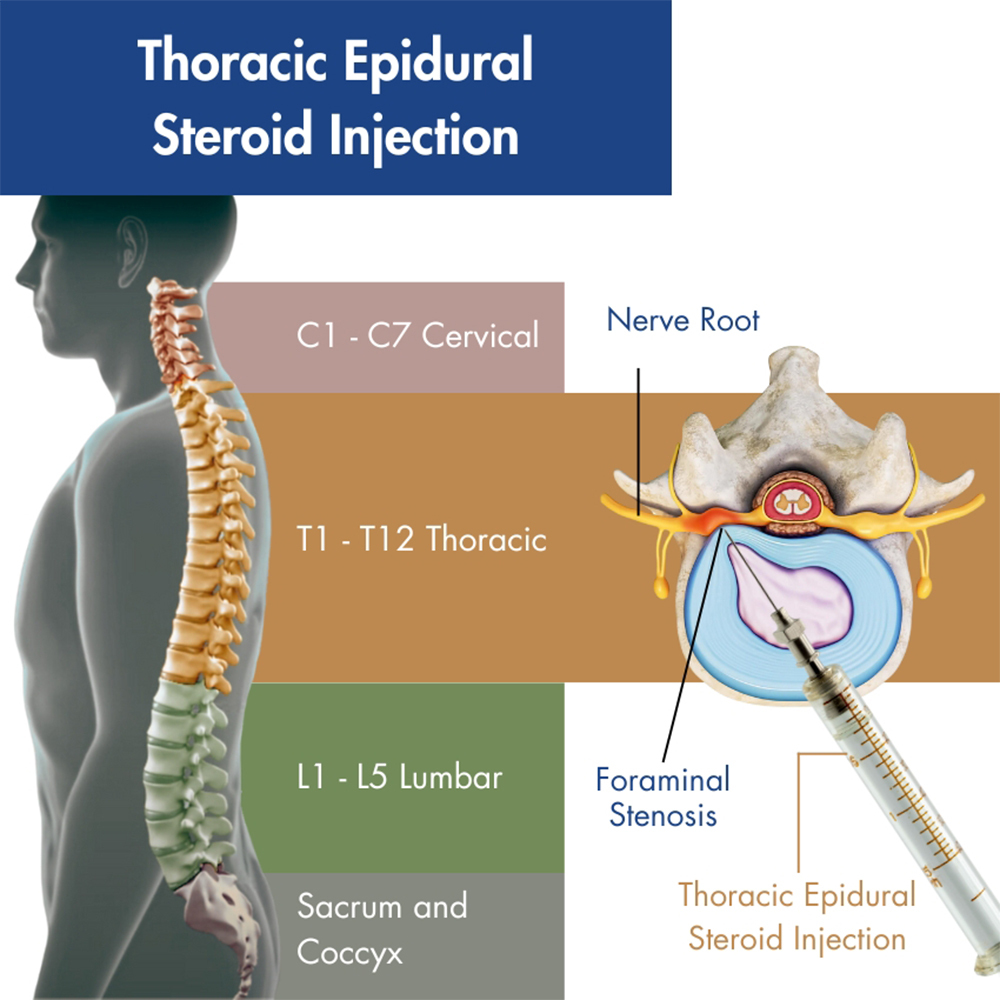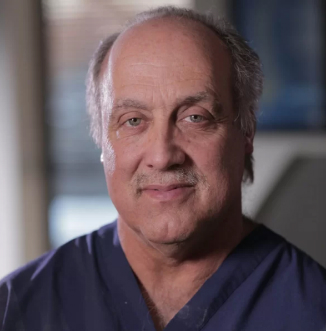We’re pleased to announce that Pain Physicians of Wisconsin is now Pro Spine Pain.
We’re pleased to announce that Pain Physicians of Wisconsin is now Pro Spine Pain.
 This is a minimally invasive injection that involves administering a corticosteroid similar to cortisone to the thoracic region in the space outside of your spinal cord. An area that covers the dura of your spinal cord in your lower back.
This is a minimally invasive injection that involves administering a corticosteroid similar to cortisone to the thoracic region in the space outside of your spinal cord. An area that covers the dura of your spinal cord in your lower back.
A thoracic epidural steroid injection helps block pain receptors along your spinal nerves and reduces pain signals by administering a local anesthetic directly onto your nerve. After the administration, you’ll usually experience less pain and less inflammation in your nerve root. The results of this treatment can temporarily last up to 12 months.
The purpose of these injections isn’t to act as a cure for spinal conditions but rather to help effectively manage them and diminish the pain linked to them. Some of the spinal conditions that a thoracic epidural steroid injection may treat are herniated discs, degenerative disc disease, facet joint syndrome, radicular pain, and compression fractures.
If you have any of these spinal conditions or symptoms linked to them, it’s worthwhile booking an appointment with our profound pain management physicians. All licensed board members with decades of experience they provide a steady, safe, and patient-centric approach to your consultation and treatment.
After meeting one of our specialists for an initial consultation, they’ll likely refer you for a more detailed look at your spinal nerves. One or several advanced diagnostic imaging tests such as a CT or MRI scan will be arranged. This will help them ensure the accuracy of the injection and know the right area to target.
Upon discussion of the results, if they feel you need an injection, they will advise you to stop taking certain medications and fast prior to the procedure.
On the day of the procedure, you can expect to undergo the following:
A thoracic epidural steroid injection is relatively painless and can be done within 20 minutes. After the injection, they will likely keep you in for up to 60 minutes for observation. You’ll also be advised not to drive for 12 hours afterward. If you experience no pain relief the following week, book a further appointment.
After the procedure, you typically will need to wait a short while before going home. Your healthcare provider can then watch for any reactions to the shot. You should be able to go back home within the hour. You may need to rest for the remainder of the day. But you should be able to resume your normal activities the next day. If you took medicine to help you relax, you shouldn’t drive or make any important decisions for at least 24 hours.
You may not notice any improvement right after your shot. The shot may take as much as a week or so before it starts to ease the pain. Any benefit may last for a few months. If the injection controls your pain while your back is slowly healing on its own, the pain may not return at all.
A thoracic epidural is a fairly safe procedure, but it does carry some risks. To help reduce these problems, healthcare providers usually use X-rays to guide them. Possible risks include bleeding, infection, temporary nerve paralysis, temporary increase in pain, rash because of an allergic reaction and headache from unintentionally inserting the needle into the spinal cord.
There is also a chance that the shot won’t ease your pain. Your own risks may differ. They depend on your age, your other medical conditions, and the reason for the shot. It might not make sense for you if you have certain health conditions. These include an infection, a bleeding disorder, or uncontrolled high blood pressure. Talk with your healthcare provider about your specific risks and concerns.
Most of the time, a thoracic epidural steroid injection is a safe procedure. To minimize the risks, our specialist physicians use state-of-the-art diagnostic imaging scans, a live fluoroscopy to guide them, and advanced techniques to ensure there are no complications.
If the injection is effective, you will likely experience pain relief and decreased inflammation for 6-12 months. Once this wears off, you can return for future injections.
One of the rare complications of epidural injections is nerve damage, which is often temporary. Anything more serious, like permanent damage or paralysis, is very rare, and our clinicians rule out this risk with prescreening and advanced techniques during the procedure.

Thomas Stauss, MD, completed both his undergraduate and medical studies at the esteemed University of Wisconsin in Madison. Dr. Stauss values having access to a wide array of cutting-edge treatment options, ensuring effective relief for his patients' discomfort and a significant enhancement in their quality of life. More specifically, he specializes in utilizing implanted devices to manage chronic pain. Dr. Stauss’s primary objective is to uphold the dignity of each patient while delivering ethical and professional services.
More about Dr. Stauss